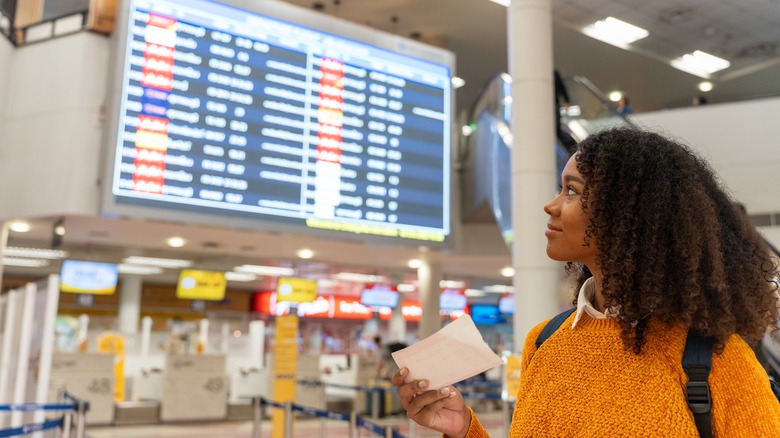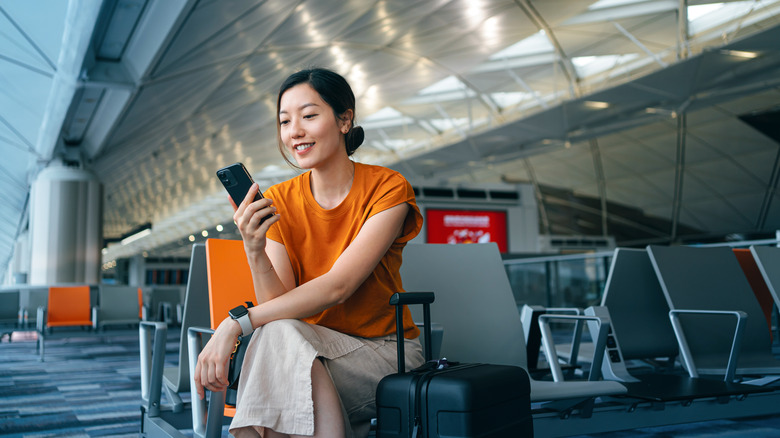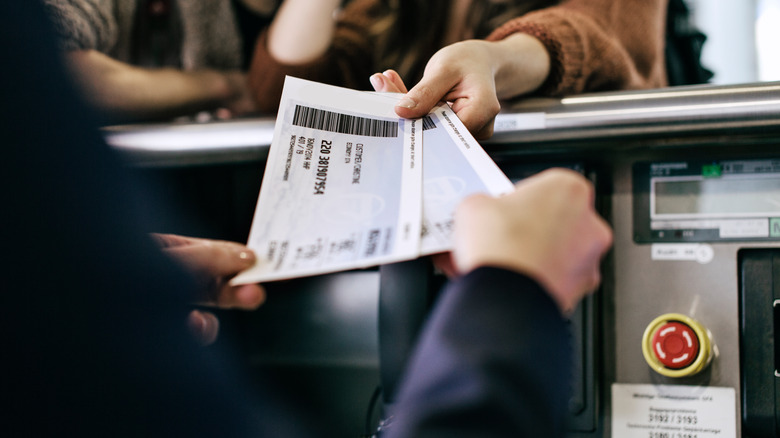What Is 'Proof Of Onward Travel'? The Bizarre Law To Know About For International Trips
Picture this: You've just landed in Paris, excited about everything you'll see, do, and eat while backpacking through Europe. Passport in hand, you approach the immigration desk ready to breeze through — but suddenly, the officer asks for something you've never heard of before. "Do you have proof of onward travel?" they say. Your palms start to sweat, your mind goes blank, and a heart-racing fear sinks in as you realize you might be denied entry over a technicality you didn't even know existed.
Truth is, this scenario can be a lot more common than you might think. A requirement that catches its fair share of travelers off guard, proof of onward travel requires visitors to a foreign country to show proof (hence the name) that they have plans to leave the country before their visa or permitted stay expires. This could be in the form of a return flight ticket, a bus ticket to a neighboring country, or any other evidence that demonstrates you won't overstay your welcome.
And while the concept might seem strange — especially if you're a spontaneous traveler who likes to keep plans flexible with a one-way ticket or a digital nomad working remotely while traveling from different destinations and hopping between countries — it's actually a common policy enforced by many countries and airlines to manage immigration and prevent overstays. All of which goes to say that, at the end of the day, knowing about proof of onward travel can save you from potential travel disasters in the long run.
Proof of onward travel is an important requirement for visitors
Aside from crushing your dreams of romantically jetting off with nothing but a carry-on and a one-way ticket, proof of onward travel is more than just a bureaucratic hurdle — it's a pretty crucial consideration. Moreover, it's also one that can significantly impact your travel plans and leave you scrambling at the last minute if you're caught unprepared.
Albeit not always a "legal requirement" per se, it's better to be safe rather than sorry and book a flight out of your travel destination before even attempting to board your initial flight. After all, more and more international airlines are now asking that travelers show proof of onward travel before allowing them to board the plane. Why the airline and not immigration officers? Because, if you're turned back at your destination, it's the airline's responsibility to get you back home — potentially all on the airline's dime.
As for figuring out if your intended destination requires that you show proof of travel, the truth is that there's no certain way to know whether an airline employee will ask to see it or not. That said, it's always better to err on the side of caution and have a return ticket safely tucked away. Otherwise, you might catch yourself struggling to try and secure a wildly overpriced last-minute plane ticket from your phone (while using some spotty airport Wi-Fi on top of that) as the gate agent suspiciously watches your every move.
Securing proof of onward travel
So how can you make sure you're never caught off guard? Well, the simplest way to ensure you have proof of onward travel is to actually book a round-trip ticket if you're planning a straightforward vacation. Alternatively, if you're planning on taking a longer break that involves multiple destinations, booking a flight out of one country and into your next country on the itinerary can also suffice — although this does require a little more planning and potentially less flexibility.
Lastly, for travelers who still prefer to keep their options open or are unsure of their exact plans, there are also services out there that can take care of securing the requirement for you. For example, companies like Onward Ticket charge users just $16 to "reserve" a ticket for up to 48 hours. In return, travelers receive a real flight confirmation that can be shown to airline staff or immigration officers as needed. Keep in mind, however, that while these services aren't technically illegal, they do operate in a gray area and can be in violation of an airline's terms of service — so use them at your own discretion.


